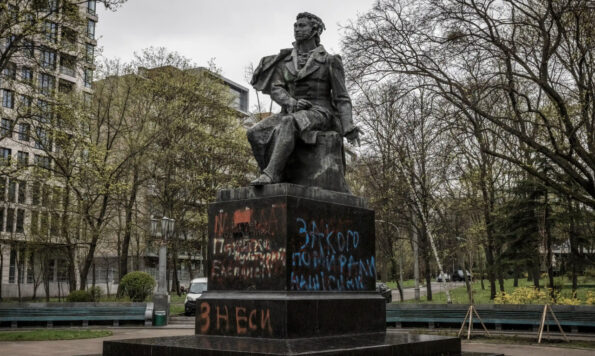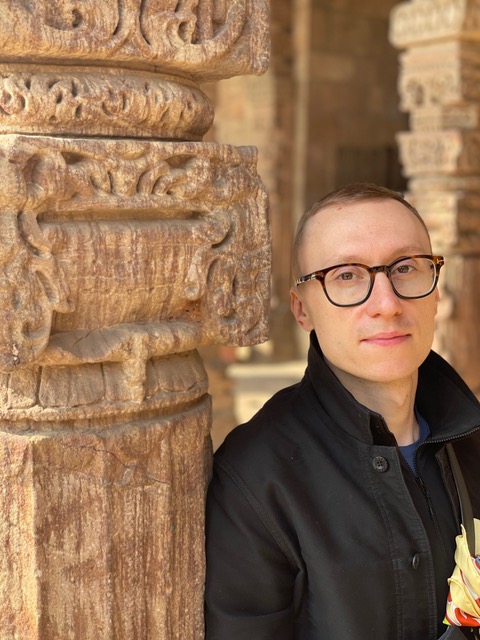Search
To search for an exact match, type the word or phrase you want in quotation marks.
A*DESK has been offering since 2002 contents about criticism and contemporary art. A*DESK has become consolidated thanks to all those who have believed in the project, all those who have followed us, debating, participating and collaborating. Many people have collaborated with A*DESK, and continue to do so. Their efforts, knowledge and belief in the project are what make it grow internationally. At A*DESK we have also generated work for over one hundred professionals in culture, from small collaborations with reviews and classes, to more prolonged and intense collaborations.
At A*DESK we believe in the need for free and universal access to culture and knowledge. We want to carry on being independent, remaining open to more ideas and opinions. If you believe in A*DESK, we need your backing to be able to continue. You can now participate in the project by supporting it. You can choose how much you want to contribute to the project.
You can decide how much you want to bring to the project.

Culture is political — there is no debate here. It cannot be seen outside of the discourse power: neutrality does not exist, and when claimed, it can only mean full compliance with power or silent obedience to it. At the same time, cultural identity is highly contextual, diverse and even contradictory. But these contexts are homogenised under the aegis of the state. Through one’s passport, the state that holds sovereignty over the birthplace location becomes the fundamental marker of one’s identity in a seemingly unspoken agreement worldwide. But we all know that the contexts in which the identity emerges are numerous, intersectional and contradictory. The normalised perception of belonging based on the travelling document given by the state to the subject of its power is a relatively young concept, originating roughly in the late nineteenth century and exacerbated by the political consequences of the aftermath of the First World War.
War generally tends to reduce things to bare agonistic simplifications: friend/enemy, life/death, ours/theirs. In most cases, it is a question of survival — there is no time for subtleties. Categories become rigid, and everything hybrid turns into suspicious and potentially dangerous.
Following the outbreak of World War II in September 1939, Max Ernst, a German national, found himself interned as an “undesirable foreigner” at Camp des Milles near Aix-en-Provence in France. With the intervention of Paul Éluard, Varian Fry, and other supporters, Ernst was released a few weeks later. However, during the German occupation of France, he was captured again by the Gestapo, this time as an undesirable sympathiser of the enemy. Lucky to have Peggy Guggenheim’s assistance, Ernst escaped and sought refuge in America.
Walter Benjamin’s story lacks a happy ending. After crossing the Franco-Spanish border on September 25, 1940, on the run from advancing Nazis, who would have shipped him to the concentration camp to be exterminated, he was arrested by the Spanish authorities to be deported back to Nazi-occupied France despite having valid onward US travelling documents. Feeling trapped in the deadly corner, the philosopher took his own life by swallowing an overdose of morphine tablets. The others in his travelling party, perhaps because Benjamin’s suicide shocked the Spanish police, were allowed passage to Portugal for onward travel and eventually escaped to the United States.
On February 19, 1942, American President Franklin D. Roosevelt signed Executive Order 9066, ordering all Japanese Americans to be relocated to the government-controlled internment camps in fear of their ‘disloyalty’ in case of the Japanese ground invasion of the United States. Thousands of families were given a week’s notice to abandon their homes only with the possessions they could carry on hand. Decades later, the American government would apologise for their response to the Japanese Empire’s attack on Pearl Harbour and pay compensation to the surviving victims of the policy.
These stories are numerous, and their geography is global. History demonstrates that an emotional reaction to looming dangers from an abstract entity, such as another nation-state, causes a search for a figurative culprit. Indeed, none of the political entities can ever claim to encapsulate the totality of the culture from the actual real-life plurality within any given society. Rounding the culture in monolithic, generalising statements bears the risk of violent oversimplification. In The Order of Things, Michel Foucault suggested the epochal categorisation of the world by epistemes, the legitimate systems of knowledge about truth and discourse in society in any given period. He defined the modern era by the book’s subject — but I would argue that the cornerstone of the perception of discourse since the nineteenth century had been defined by the events of October 1648 in the Westphalian cities of Osnabruck and Munster. The Peace of Westphalia laid the foundation stone of the defining category of culture – a nation-state. Since then, the idea of “national culture” has gradually stepped onto the toes of imperial and royal sovereignties. The genie was out of the bottle — materialising the imaginary borders and creating the idea of a ‘normal’ subject, defined by specific categorical characteristics, from the type of the spoken language and dialect to the skin colour.
Since the commencement of the full-scale invasion of Ukraine in February 2022, Russian authorities have stepped up the appropriation and weaponisation of cultural heritage in chauvinistic ways. For example, the figure of Alexander Pushkin, a Russian multiracial poet and writer whose work is considered instrumental in shaping the modern Russian literary language, is used on the placards and murals covering the new builds in occupied Mariupol. There, the invading Russian forces destroyed or damaged more than ninety per cent of the buildings murdered thousands and displaced hundreds of thousands of people. Against this background, the Russian state presents Pushkin as a beacon of the “high culture” of the empire, whose ‘purity’ is meant to purge the separatist ‘secondary’ Ukrainian culture in the occupied territories. In return, the Ukrainian defenders often refer to the Russian army troops as ‘pushkinists.’
The semantics of the words, even the names of historical figures, is a dynamic parameter. The transformation of the political context and cultural discourse can turn the meaning of the words and symbols upside down. Swastika, which has been a symbol representing spirituality and divinity in the ancient Eurasian, American and African cultures for millennia, became the internationally recognised mark of Nazi fascism after its deployment in the party symbology in the twentieth century. Now Pushkin, Tolstoy and Dostoevsky, ballet and even avant-garde legacies are dragged by the Russian state into the ugly pit of justification of contemporary war-mongering. Along with this, the cultural practitioners of today opposing the state continue to face ‘double cancellation’ just like Max Ernst more than eighty years ago.
They say one cannot choose where she was born, but she can decide where to go from there. It is important to remember that the state, as a mental construct, should not be materialised in the imaginary. Despite whatever the propaganda and political leaders want to make their subjects believe, states are not more than transitory forms of bureaucratic abstraction, an assemblage of symbols in make-believe form. Until our educational systems and popular culture would not stop actively and passively contributing to the ‘materialisation’ and romanticisation of imaginary political entities, the ‘national’ anything will continue to be a tickling bomb ready to burst off at the moment of political need. In the published on February 15, 2024, piece The Growing Peril of National Conservatism, The Economist editorial team writes, “Instead of ceding the power of national myths and symbols to political opportunists, liberals need to get over their embarrassment about patriotism, the natural love of one’s country.” I would disrespectfully disagree — as a disturbing sentence formulation and usage of the phrase “natural love” is somewhat alarming, mainly as it appears in a publication like this in our time.
Can we reclaim culture from the state-perceived ‘ownership’? Can anyone claim sovereignty over the culture at all? What is the distance between personal and collective responsibility for the state’s actions, and how does cultural context create the conditions in which those actions become possible?
Does state equal culture? Following the opinion piece, which sets the current situation in the comparative perspective, I have presented a series of conversations with artists, art educators, an institution director and a gallerist, finding themselves in the context of numbing disorientation and figuring out the ways forward.
[Featured picture: Ed Ram/The Guardian, available at https://www.theguardian.com/world/2023/may/05/monuments-to-russia-national-poet-pushkin-under-threat-in-ukraine]

Denis Maksimov is an art historian and cultural critic. He is a Foyle Curator of Exhibitions and Public Programming at Pushkin House and a Lecturer at the Institute of Contemporary Art. He runs the Lecture Performance Archive, an interdisciplinary research project, and co-founded Avenir Institute, an artistic think tank.
"A desk is a dangerous place from which to watch the world" (John Le Carré)